- Home
- Roy J. Snell
Johnny Longbow
Johnny Longbow Read online
Produced by Stephen Hutcheson, Rod Crawford, Dave Morganand the Online Distributed Proofreading Team athttps://www.pgdp.net
_Mystery Stories for Boys_
Johnny Longbow
_By_ ROY J. SNELL
The Reilly & Lee Co. Chicago New York
_Printed in the United States of America_
_Copyright, 1928_ by The Reilly & Lee Co. _All Rights Reserved_
CONTENTS
CHAPTER PAGE I The Last Arrow 11 II Mysterious Fear 36 III The Knife in the Tree 54 IV Green Gold 64 V A Mad Moose 70 VI A Strange Meeting 80 VII A Look Beyond 95 VIII A Haven of Refuge 105 IX A Moving Island 121 X Treachery in the Night 135 XI The Dancing Shadow 148 XII The Great Banshee 153 XIII The Answered Challenge 164 XIV A Mysterious Visit in the Night 169 XV On the Trail of the Great Banshee 182 XVI Down with the Avalanche 188 XVII The Giant Hunchback 202 XVIII Saved by a Line 216 XIX Gordon Duncan's Story 233 XX Adrift in the Night 243 XXI The Battle of the Bears 251 XXII The Hunchback Leads On 264 XXIII Three Bear Skins 271 XXIV Left Behind 279 XXV Adventure in Pantomime 285 XXVI Into the Ice Jamb 293 XXVII Green Gold at Last 304
CHAPTER I THE LAST ARROW
Johnny Thompson caught his breath as his feet shot from beneath him andhe plunged into a rushing torrent of icy water. Thoughts flashed acrosshis mind, mental pictures of homes and firesides. Echoes of laughtersounded in his ears.
Yet in this wilderness there was no laughter save the boisterous roar ofan Arctic stream. There were no homes save those of the muskrat, thebeaver and the white owl. The nearest cabin was fifty miles or more back.An all but impassable forest of scrub spruce, fir and pine lay between.There was time for but a flash back before Johnny found himself fightingfor his life against the torrent that was dragging him over rocks andsunken logs, splashing, ducking, pulling at him and threatening everymoment to make an end of him.
But Johnny Thompson was not one to be beaten at once by this rushingtorrent of northern Canada. Swimming strongly, warding off overhangingbranches here, dodging great protruding boulders there, he still watchedfor a gently shelving bank that might offer him so much as a moment'srest. Since no such haven offered itself at once, he shot the rapids likea salmon.
A long, slender oiled canvas sack hung at his back. Twice this threatenedto prove his undoing. It caught upon a tough willow branch and draggedhim beneath the surface. Hardly had he freed himself than this same sackthat apparently contained some stiff and stubborn affair of wood or steelcaught in a rocky crevice to throw him high and wide. This involuntarypole vault left him with breath quite crushed out, but still struggling.
Suddenly, straight ahead, he caught sight of that which must prove hissalvation or his undoing. Undermined by the torrent a green spruce treelay squarely across his path.
Ten seconds to wonder. Would he be caught in the branches and drowned, orwould he mount those same branches to freedom?
Sixty seconds of terrific battle and the splendid muscles of the boy wonagainst relentless nature. Panting, triumphant, he sat astride thebranches.
He was saved. There remained but to climb back to land. He was cold andwet. A roaring fire would remedy that. His blanket roll lay where he hadtossed it on this side of the stream before he attempted to ford thetreacherous tumult of water. The way back to his blankets would be roughgoing. He'd manage that.
But suddenly the smile on his face faded. His eyes had fallen upon thelong sack that had hung at his back.
"Gone," he muttered, "torn open by the same branch. And they're gone, allgone but one."
After adjusting the torn fastenings as best he could, he worked his wayover the swaying tree trunk to solid earth. Then with sober face, hebegan making his way back over the rocks to the spot where his blanketroll lay. The situation was a serious one.
An hour later he sat before a roaring campfire of fir and balsam boughs.Dressed in a change of clothing and wrapped in a blanket, with hiscostume of an hour before sending clouds of steam toward the sky, hemight have seemed the picture of contentment. He was far from contented.Presently he removed a small coffee pot from the fire and poured a cup ofdark brown liquid. The aroma of coffee seemed good. He smiled. Then,without sugar or cream, he gulped it down black and hot. Nor did he eatafter that. There was nothing to eat.
Had you chanced to look into his pack you would have found there neitherfirearms nor ammunition. The nearest cabin that he knew of in all thatvast northern wilderness was fifty miles back over an ill-defined trail.That cabin was deserted. He had slept there four nights back.
So Johnny sat by the fire meditating, thinking on matters of greater orless importance. And as he meditated, at a point somewhat more than amile downstream, as the crow flies, a figure appeared among the rocksthat kept the rushing stream in tumult.
A girl in her late teens, she moved out from among dark pines into apatch of light. The touches of sunset, lighting up her dark brown hairand adding a touch of gold to her ruddy freckled cheeks, transformed herfor the moment into a goddess of the forest.
Sensing the change, she stood motionless as a statue for a full moment.Then, into that glory of the sunset she smiled, and the smile made herseem more alive than any wild thing that had ever ventured to the brinkof that tumultuous stream.
In her hand she held a rustic bucket. Its handle, a thong of caribousinew, its bottom a circle of wood cut from some fallen spruce tree, itssides white birchbark, this bucket seemed a part of the wilderness.
As she stooped to fill the rustic bucket, her eyes caught sight of someunusual object bobbing up and down in the water.
One moment, a flash of red and gold, she saw it. The next it was lost ina rush of foam. In a twinkling the bucket was dropped among the rocks andshe went racing downstream in hot pursuit.
A hundred yards, leaping from boulder to boulder, she plunged onwarduntil, red-cheeked, panting, she came upon an eddy, a still dark pool,twenty feet across, and at its very center, moving serenely about, wasthe coveted prize.
With the aid of the slow current and a long dry pole, she succeeded atlast in coaxing the thing ashore.
As she grasped it, a trio of bright feathers bound to a slender shaftcame to view. She caught her breath again. And as she pricked her hand onthe broad head sharp as a razor at the other end of the shaft, her facelost some of its heigh
tened color.
Turning, she raced back to the spot where the crude bucket still rested.There, without pausing to complete her errand, she dashed up the slope toa spot where a tumbled-down cabin rested among the trees.
A man, very tall, very straight and quite old, a bearded patriarch, roseat her approach.
"Grandfather!" she exclaimed, almost in a whisper. "We must leave thiscabin at once."
The old man threw her a questioning look. For answer she held up thearrow she had found floating feather up in the stream.
Taking it from her, he examined it closely in the waning light.
"White man," he pronounced at last, as if reading from a book. "Somewhatnew at the game, but possessed of a considerable knowledge of the art. Avery good arrow.
"We must go up," he said after a moment of silence. "We will go up atonce."
They entered the cabin together. Some twenty minutes later, with wellarranged packs on their backs, they emerged from the shadowy interior togo marching briskly down toward the banks of the rushing stream. Therethey began leaping from rock to rock. In this manner they traveled aconsiderable distance without leaving a single tell-tale footprintbehind.
So they moved on into the twilight, a powerful old man and a short,sturdy girl, marched on into a wilderness that is acquainted only withthe voice of the wolf, the caribou and the white owl.
Once as they paused for a moment's rest beside a great flat rock, thegirl removed some object from her pack and held it up to the uncertainlight.
"It's strange," the old man rumbled. "An arrow, a well-shaped,well-constructed arrow with a death-dealing steel point! Had it been ashot gun shell, that would not have seemed strange. But an arrow!"
"But Grandfather, we----" The girl stroked a strong longbow that hung ather side.
"Yes, I know." The old man's smile was good to see. "But we are of abygone race, at least I am. This is 1928. Except for such as we are, thebow and arrow are of the past. But see!" He started up. "It is gettingdark."
A few yards farther down the strange pair left the stream's bank to goclambering up a rocky run. Even here they avoided snow. And so, marchingsturdily forward, they faded into the gathering darkness and deep shadowsof pines.
You have perhaps guessed that the arrow found bobbing its way downstreamcame from Johnny Thompson's quiver. In fact at the very moment when theold man and the girl left the cabin, he was engaged in the task of oilingtwo stout bows and waxing their strings. Having done this, he lookedsorrowfully at the single broadhead arrow that remained in his quiver,took one more long gulp of hot black coffee, then set to wondering whatlay before him.
To be facing a wilderness alone with bows and arrows as one's sole meansof securing food might seem bad enough. To have but one arrow; what couldbe worse? A missed shot, a shattering rattle against the rocks, and thisarrow might be gone forever.
And then? Blunt arrows, sent crashing into the side of resting rabbit orsleeping ptarmigan would be as deadly as spear point when fired fromJohnny's sixty-pound bow. There was wood all about for shafts. But whatof feathers and weights for the tips? One might come upon a sleeping owl.Here would be feathers.
"And yet," he told himself, "I have not seen a living thing for threedays. The country is deserted. But no, not quite. There was the cariboutrack."
Ah, yes, that very afternoon he had come upon the trail of a caribou. Ithad been this very caribou that led him to disaster. The beast hadcrossed the river. In attempting to follow he had come near losing hislife, and had lost all but one of his arrows.
"Ah, well," he sighed, "to-morrow my luck will turn. A single arrow isenough for a caribou and I am now on his side of the stream. I will takeup the trail in the morning."
With that, after replenishing his fire, he rolled up in his blankets andprepared for a night's repose.
Was it the coffee? Was it hunger? Or was it the silence of the night inthat strange land that robbed him of coveted slumber? For long his eyesremained closed. Yet sleep did not come.
At last, yielding to the inevitable, he opened his eyes wide to stareupward through sighing pine branches to the infinite heavens above, wherea myriad stars twinkled and beamed as they appeared to leap acrosstossing clusters of pine needles.
Like a story told by a poet, a picture thrown on the screen, his life ofthe past few months moved before him.
Arriving from dreamy tropical seas and deep tangled swamps of CentralAmerica, he had in late Autumn arrived at the mid-western city which wasinseparably linked with his childhood.
There, as he felt the crisp tang of autumn mornings and caught the gleamsof frost on the corn, he felt again the lure of the North.
Months of hot tropical sun lay behind him. He had come to loathe the softwarmth that saps men's energies, thins their blood and weakens theirwills. He yearned now for the long white trail, the screaming of sledrunners, the song of dogs that is an Arctic night.
But at this moment a fresh fancy seized him. Burton Bronson, an old-timefriend, had by chance shown him a hunting bow with which he had performedmarvelous feats. The wolf, the wild cat, mountain lion and bear had feltthe bite of his broadhead arrows.
Johnny had been skeptical. Bronson had demonstrated his power. Johnny hadcome to believe. He was at once fascinated by this new form of sport. Thelongbow, the arrow, and wide open spaces took him in hand.
Long weeks they led him over sand dunes, across broad prairies, throughsilent forests.
When weather became too bleak for out-of-doors sport, he had retreated tothe cover of the North Shore Archery. There he had so perfected his formthat no small game was safe from his straight speeding arrow.
Then it was that his longing for the North returned. On top of this camethe resolve to stake his fortune for the immediate future on his recentlyacquired skill. He would go into the North with no other weapon than thebow and arrow. With these alone, as the savages had done before him, hewould make his way northward through Canada until, fortune attending him,he should reach the headwaters of the mighty Yukon in time to witnessthat greatest of nature's panoramas, the Spring breakup on the river.
So here he was. Over many a long mile Fate had been kind to him. Indiansand white men alike had treated him well. They had laughed good-naturedlyat his weapons, but had admired the strength and skill he exhibited inusing them. The Indians of the first trading post had dubbed him "JohnnyLongbow." Johnny Longbow he was after that. He was not ashamed of thenickname, nor the things for which it stood.
Beside him now, there in the midst of the great white wilderness, lay histwo bows. One was of yew wood, backed with calfskin thin as parchment;the other an affair of his own making. Carved from the hardest andtoughest of wood, osage orange, this bow was the pride of his life. Heloved and trusted it as a friend. It had never failed him.
"If only I had arrows for you!" he whispered now. "But we will have thatcaribou to-morrow."
With that he closed his eyes and fell asleep.
Johnny Longbow's breakfast next morning consisted of two cups of blackcoffee and a handful of sour berries he found clinging to their stemsjust as a premature winter had found them.
Placing his pack in the crotch of a tree and marking the spot well, heslung his handmade osage bow across his back, thrust his lone arrowsword-like through his belt, then marched forth into the crisp glory ofArctic morning, to seek out the lost trail of that lone caribou.
It was late afternoon when, with heart pounding painfully against hisribs, he stood neck deep among scrub spruce trees.
The scene before him was one to inspire an artist's brush or lend fire toa poet's pen. A young buck caribou, a superb creature of shining brownand glistening black, stood before him in a narrow circle of green.Walled in on every side by dark young fir trees, the wild creature'sminiature pasture seemed to have been planned by some famous director forthe setting of a scene in a wildwood drama.
The caribou was feeding toward him.
"Another minute, just one more," he told himself.
His watch ticked loudly. It seemed certain that the wild creature musthear. The snap of a twig off to the right came near spoiling it all. Thecaribou lifted its head. Johnny's unnerved hand all but lost its grip onhis bow.
The day's trail had been long and tiresome. Over rocky slopes, down icystreams, across treacherous snows, the caribou had led the way until theboy, weak from lack of food, was near to the point where one gives up indespair. Twice, as if to tempt him, a snowshoe rabbit leaped from hispath, only to pause among the rocks and stare at him. Twice he had strunghis bow, twice nocked his single arrow for a shot. Twice he had toldhimself that a miss among those rocks meant a shattered shaft, that atmost the rabbit offered but a meal or two of indifferent food. Twice hehad slipped the arrow in his belt, had unstrung his bow to take up thetask of dogged tracking.
"It's to be the caribou or nothing!" he had told himself. "A month'sprovision, or famine."
And now, here, just before him, feeding peacefully, was the caribou. Forthe moment he was well over at the far side of his narrow pasture. A fewmoments more, and he would be close enough for a sure shot, and then! Theboy caught his breath as he thought what the speeding of that singlearrow meant to him.
Closing his eyes, he saw himself, a load of meat across his shoulders,beating his way back to the last outpost of civilization where werefeathers, wood and steel for the making of many arrows. Then again thepicture went dark. He saw the shadow of his present self, struggling overlong lost trails, eagerly sucking bitter bark or grubbing into frozenearth for some crude substance with which to allay his hunger.
"I must win!" he told himself stoutly. "I must not miss!"
And still, as the moments passed, as the caribou moved nearer and nearer,the zero hour came closer to hand, he found his faith wavering.
"One arrow," he thought over and over, "only one."
But "Now! Now!" he breathed at last. "Can't wait any longer."
As the antlered monarch of the far north raised his head to stand theresilent, listening, still as a statue, Johnny's bow twanged, his arrowsped.
With a bound high and free the wild creature leaped away.
One, two, three bounds, and he had cleared the spot of light green.Another, another and yet another, he went thrashing breast deep in theyoung firs.
"Missed!" Johnny groaned. "Missed! And he carries into the forest my onlyarrow!"
But what was this? Just as his head fell in dejection he saw the cariboumake one more leap, high and wide, then come to a sudden stand. Stillbreast deep in darkest green, he appeared to view the scene beforeanother wild dash.
"Oh, for one more arrow!" the boy groaned.
"There is no other, so what's the use?"
In the forlorn hope that his lone arrow might by chance have glanced andfallen on the green, he moved toward the narrow circle of wild pasture.
Then suddenly he stood still. There had come to his sensitive ear a soundof movement in the brush.
"Not the caribou either," he told himself as his heart skipped a beat."Some wild beast of prey, a bear or a wolf."
But no, a greater surprise awaited him. Before him, much closer to thecaribou than to him, a khaki clad back appeared. A boyish head, an oldcap, a pair of stout arms held high, a bow, a quiver of arrows. Asecond's suspense, and an arrow flew straight and fair at the statuesquecaribou.
"'Twon't do," Johnny told himself, rubbing his eyes. "This is NineteenTwenty-eight. Strange enough for me to be here. But a girl with only abow and arrow in these wilds? It can't be!"
And yet it was. As he looked again the girl was still there. So too wasthe caribou.
"Two arrows, and still he stands there motionless. That creature, thisplace is bewitched. I'll break the spell."
He was about to lift his voice in a loud "hello" when the girl, turninghalf about, fitted a second arrow to her bow and let fly.
"Straight to the mark, as I live!"
Johnny spoke his thought out loud. "And still he stands."
The girl wheeled about to stare at him in blank surprise. Then, assurprise and fear left her, she exclaimed:
"The beast is surely charmed! I've shot him, and yet he does not stir!"
Suddenly the shining black antlers sank low. The whole head of thecaribou disappeared in the brush. Still his body remained erect.
"Mystery here!" Johnny sprang forward.
The girl, as if in fear of losing the prize, started forward.
"It's all right," said Johnny. "He's yours. I missed him fair enough."
"You--you missed?" The girl's tone showed surprise.
Johnny did not hear.
"Mystery solved!" he shouted back a moment later. "When he made that lastleap he landed so squarely on the tops of a half dozen young fir treesthat they did what his legs no longer could. They supported him.
"But say!" he called. "It's queer. Come here, please."
As the girl advanced he had time for a brief study of her fine, strong,khaki clad figure.
"Eighteen or twenty. English or Scotch. An outdoor girl," was his mentalcomment.
"Question is," he smiled as the girl came close, "Who's caribou is it?Three arrows, all quite near the heart. Two are yours, one mine."
"You--yours?" The puzzled look of a moment before returned to the girl'sface.
"Yes. I shot first. You did not see me. But there's my arrow.
"But really," his tone changed as the girl seemed suddenly crestfallen,"there's no need of mine and thine in the forest. I am glad as I can beto know that there's a fellow creature near. That was my last arrow."
"And you are alone?"
"Quite alone."
"You look hungry," she said suddenly.
"I am, a little. Haven't really eaten for--well, for some time. Luck wentagainst me. Couldn't even get a fish."
"We'll take the caribou to camp," she said. "It's only a half mile, alldown grade. Grandfather--"
She broke off quite suddenly as one does who has found himself in dangerof saying too much.
"You--you have a camp of your own--" she hesitated, "perhaps--" Again shepaused.
As Johnny watched, he read in her face signs of conflicting emotions.Native hospitality, a longing for companionship, youth calling to youth,were battling with fear. This much he understood. But why the fear? Shehad spoken of a grandfather. Surely then there could be no objection tohis joining them in a feast off the venison they had secured.
"Perhaps," she began again. "Here," extending her quiver filled witharrows, "take these. We have others."
"I'll dress the deer and we'll divide it," said Johnny, exasperated bywhat seemed to him cool effrontery. He did not so much as look at theproffered arrows.
Hanging her quiver on a spruce bough, the girl assisted him in liftingthe caribou to a strong bough and stringing him up. It was then thatJohnny came to know of her superb strength.
"Like a man," he told himself.
She sat watching in silence as he performed his task. When, however, hehad dressed the deer, severed its head from its body and was studying theproblem of a fair division without an axe or butcher's cleaver, she spokeagain.
"Lift the fore parts to my shoulder," she said quietly. "I think we cancarry it to camp."
That she had arrived at some decision as he worked Johnny guessed. Whatdecision, and why? This he did not know.
The girl led the way. The going was rough. More than once she slipped andall but fell. Yet each time her recovery was that of the perfectwoodsman, like the spring of a creature made of steel. Once she fellforward, and the caribou dropped to earth. Before Johnny could come toher aid she was up with a low laugh and lifted the burden to her shoulderonce more.
"She's wonderful!" he told himself. "I hope----"
He was not quite sure what it was he hoped. He had been a long time inthe wilderness, had been facing starvation, too. He had not realizeduntil this moment how bleak and lonely it had been.
"But now--"
His thoughts were broken short off by the girl's a
ctions. She had come toa sudden stop.
"Drop--drop it down here." Her words came uncertainly.
Johnny obeyed. The next instant she had disappeared into the brush thatsurrounded them on every side, nor had he seen which way she had taken.
"Gone," he told himself.
Dismay overtook him. She might not return. There was something altogetherstrange about the whole affair. But half a caribou in a wilderness! Yes,she would return. So he sat down to wait, and as he waited, there came tohim, wafted along by a gentle breeze, faint odors of campfire smoke andbacon frying.

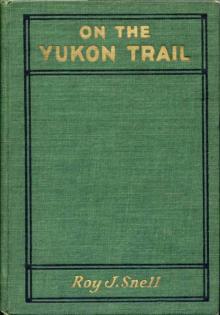 On the Yukon Trail
On the Yukon Trail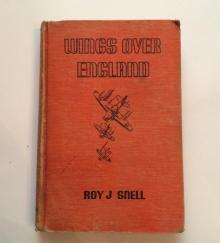 Wings over England
Wings over England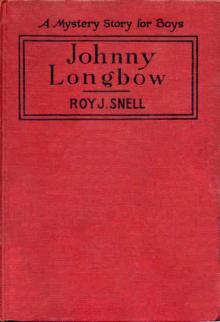 Johnny Longbow
Johnny Longbow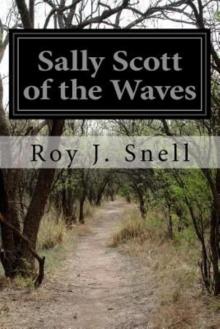 Sally Scott of the WAVES
Sally Scott of the WAVES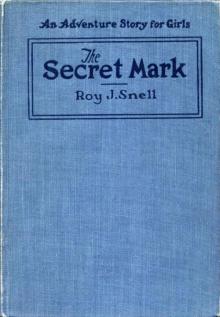 The Secret Mark
The Secret Mark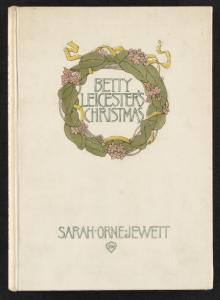 Betty Leicester's Christmas
Betty Leicester's Christmas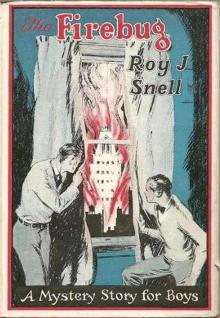 The Firebug
The Firebug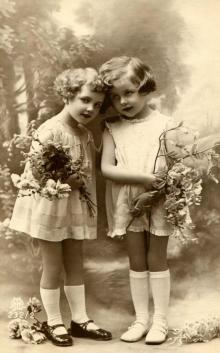 Minnie Brown; or, The Gentle Girl
Minnie Brown; or, The Gentle Girl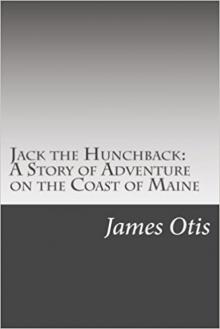 Jack the Hunchback: A Story of Adventure on the Coast of Maine
Jack the Hunchback: A Story of Adventure on the Coast of Maine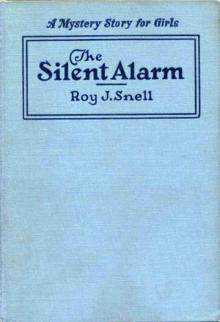 The Silent Alarm
The Silent Alarm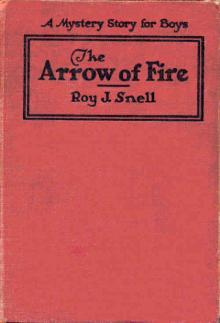 The Arrow of Fire
The Arrow of Fire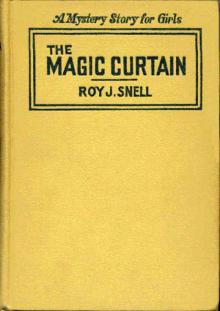 The Magic Curtain
The Magic Curtain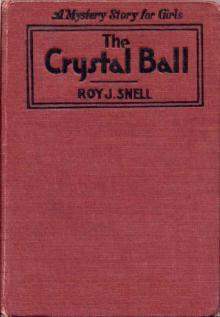 The Crystal Ball
The Crystal Ball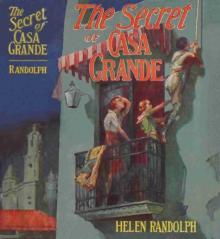 The Secret of Casa Grande
The Secret of Casa Grande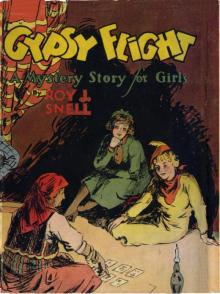 Gypsy Flight
Gypsy Flight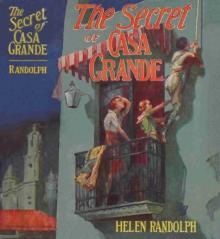 The Mystery of Carlitos
The Mystery of Carlitos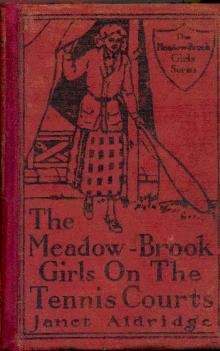 The Meadow-Brook Girls on the Tennis Courts; Or, Winning Out in the Big Tournament
The Meadow-Brook Girls on the Tennis Courts; Or, Winning Out in the Big Tournament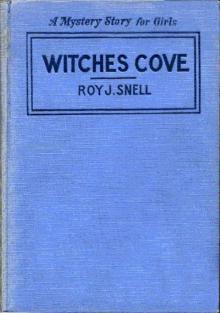 Witches Cove
Witches Cove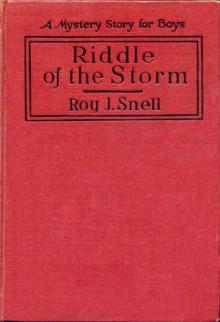 Riddle of the Storm
Riddle of the Storm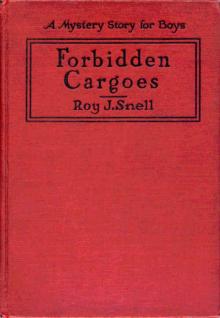 Forbidden Cargoes
Forbidden Cargoes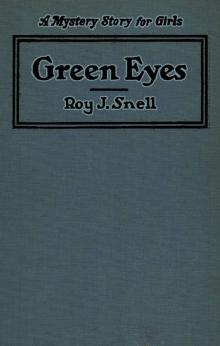 Green Eyes
Green Eyes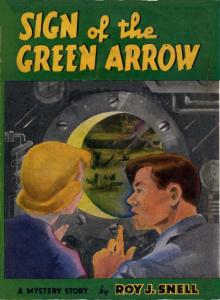 Sign of the Green Arrow
Sign of the Green Arrow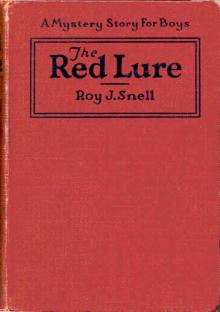 The Red Lure
The Red Lure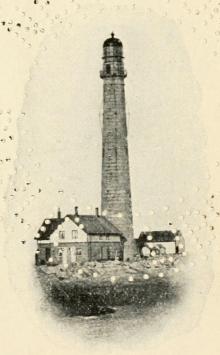 The Light Keepers: A Story of the United States Light-house Service
The Light Keepers: A Story of the United States Light-house Service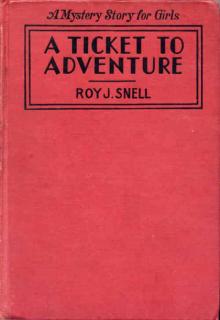 A Ticket to Adventure
A Ticket to Adventure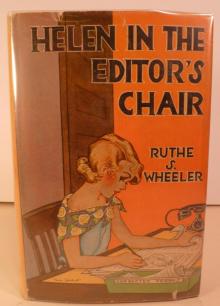 Helen in the Editor's Chair
Helen in the Editor's Chair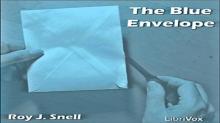 Blue Envelope
Blue Envelope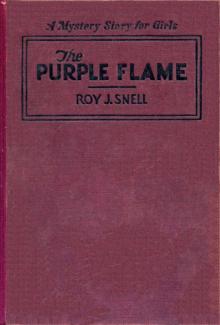 The Purple Flame
The Purple Flame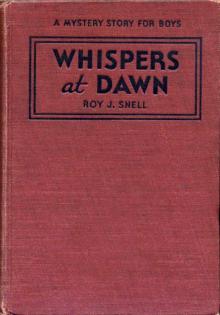 Whispers at Dawn; Or, The Eye
Whispers at Dawn; Or, The Eye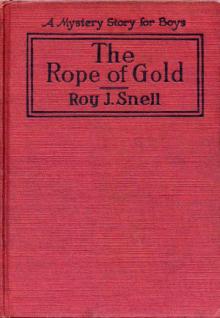 The Rope of Gold
The Rope of Gold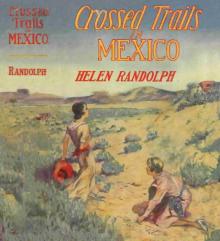 Crossed Trails in Mexico
Crossed Trails in Mexico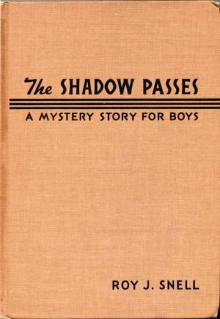 The Shadow Passes
The Shadow Passes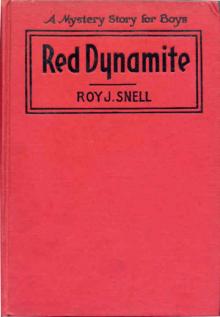 Red Dynamite
Red Dynamite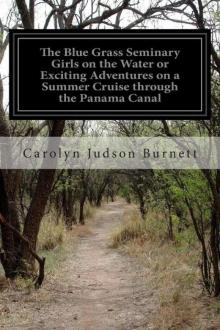 Blue Grass Seminary Girls on the Water
Blue Grass Seminary Girls on the Water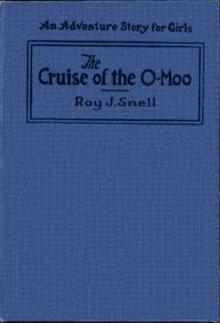 The Cruise of the O Moo
The Cruise of the O Moo